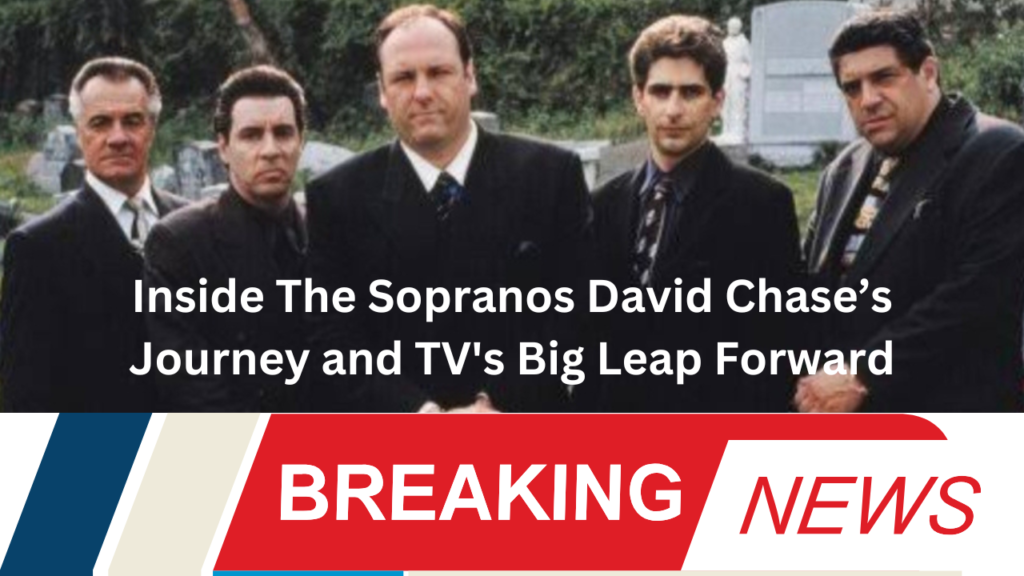Twenty-five years after “The Sopranos” revolutionized television, David Chase’s landmark series remains a focal point of cultural and critical discourse.
Alex Gibney’s documentary, “Wise Guy: David Chase and The Sopranos,” offers a comprehensive examination of the show’s impact and Chase’s personal journey. While Chase’s initial hesitance to delve into his creation is apparent, Gibney’s adept interviewing and insightful analysis reveal new layers to both the show and its creator.
At the outset of “Wise Guy,” David Chase expresses his discomfort with the documentary’s shift from focusing on the show’s legacy to an in-depth exploration of his personal life. Chase agreed to participate with the expectation that the project would celebrate “The Sopranos” itself. However, as he realized the film was more about him and his psychological landscape, his unease became evident. Despite this, Gibney’s skillful approach encourages Chase to confront and discuss the deep connections between his own life experiences and the complex characters of his New Jersey mobsters.
Chase reflects on how “The Sopranos” deviated from his original aspirations of making movies. He candidly admits that his fears and the lure of financial stability diverted him from directing to television writing. The documentary sheds light on how “The Sopranos” marked not only a significant turn in Chase’s career but also a pivotal moment in television history, signaling the rise of prestige TV and the decline of conventional network programming.
A Cultural and Psychological Exploration
Gibney’s documentary goes beyond traditional biography, offering a cultural and psychological analysis of “The Sopranos.” The film explores how the show mirrored America’s shifting values and anxieties at the time. Tony Soprano, portrayed as a complex figure torn between internal conflicts, symbolizes broader existential dilemmas. Gibney delves into the show’s use of Freudian themes, particularly through Tony’s therapy sessions, which serve as a vehicle for exploring the character’s psychological depth.
The Impact of Violence and Controversy
One of the most discussed aspects of “The Sopranos” is its depiction of violence. Lorraine Bracco, who played Dr. Melfi, provides a candid account of her initial reaction to the controversial rape scene involving her character. Her reluctance and eventual acceptance highlight the intense debates surrounding the show’s portrayal of graphic content. As contemporary television increasingly embraces similar themes, “The Sopranos” stands out for pushing boundaries and challenging viewer perceptions, even as its approach to violence has been both praised and criticized.
The documentary also offers a behind-the-scenes look at the casting process, emphasizing the meticulous effort involved in assembling the show’s ensemble. James Gandolfini’s casting as Tony Soprano is highlighted as a stroke of genius, though HBO’s initial reluctance meant it took ten months for the series to be greenlit. Through outtakes, audition tapes, and interviews, Gibney illustrates the intricate process of finding the right actors, underscoring how crucial these choices were to the show’s success.
Gandolfini’s Legacy and the Show’s Enduring Influence
James Gandolfini’s portrayal of Tony Soprano is central to the documentary’s narrative. Although Gandolfini passed away in 2013, his impact on the show and its legacy is vividly captured through interviews and archival footage. The documentary reveals the duality of Gandolfini’s public persona, juxtaposing his charismatic, often humorous side with the darker aspects of his character. The film also pays tribute to other key figures, such as Nancy Marchand and Tony Sirico, offering a more rounded view of their contributions to the series.
The Evolution of TV and Its Implications
“Wise Guy” not only reflects on “The Sopranos” but also contextualizes its impact on the broader television landscape. The documentary illustrates how the show’s success helped redefine television, setting a new standard for serialized drama and character complexity. By pushing the envelope in terms of narrative depth and production quality, “The Sopranos” paved the way for future shows to explore more sophisticated and often controversial themes.
The Intricacies of Therapy and Character Development
In its second segment, the documentary examines how therapy is portrayed in “The Sopranos,” particularly how it influences Tony Soprano’s character. Gibney and Chase discuss the paradox of therapy in the show how it ostensibly helps Tony become a more effective mobster rather than a better person. This nuanced portrayal of therapy reflects the series’ broader exploration of psychological and moral ambiguity, contributing to its enduring relevance and appeal.
“Wise Guy” serves as a comprehensive exploration of the legacy of “The Sopranos,” revealing both the personal and cultural dimensions of its creation. Through insightful interviews, behind-the-scenes footage, and critical analysis, the documentary underscores the show’s profound impact on television and its continued relevance. As viewers reflect on the series and its achievements, “Wise Guy” provides a compelling reminder of how “The Sopranos” transformed television, challenging conventions and setting new standards for storytelling.











More Stories
Understanding America’s Regional Patchwork A Guide to the Key Political Areas
The Electoral College Debate A Closer Look at Its Impact on Modern Elections
November’s Unsettling Tropical Outlook Potential Storms Loom in the Atlantic